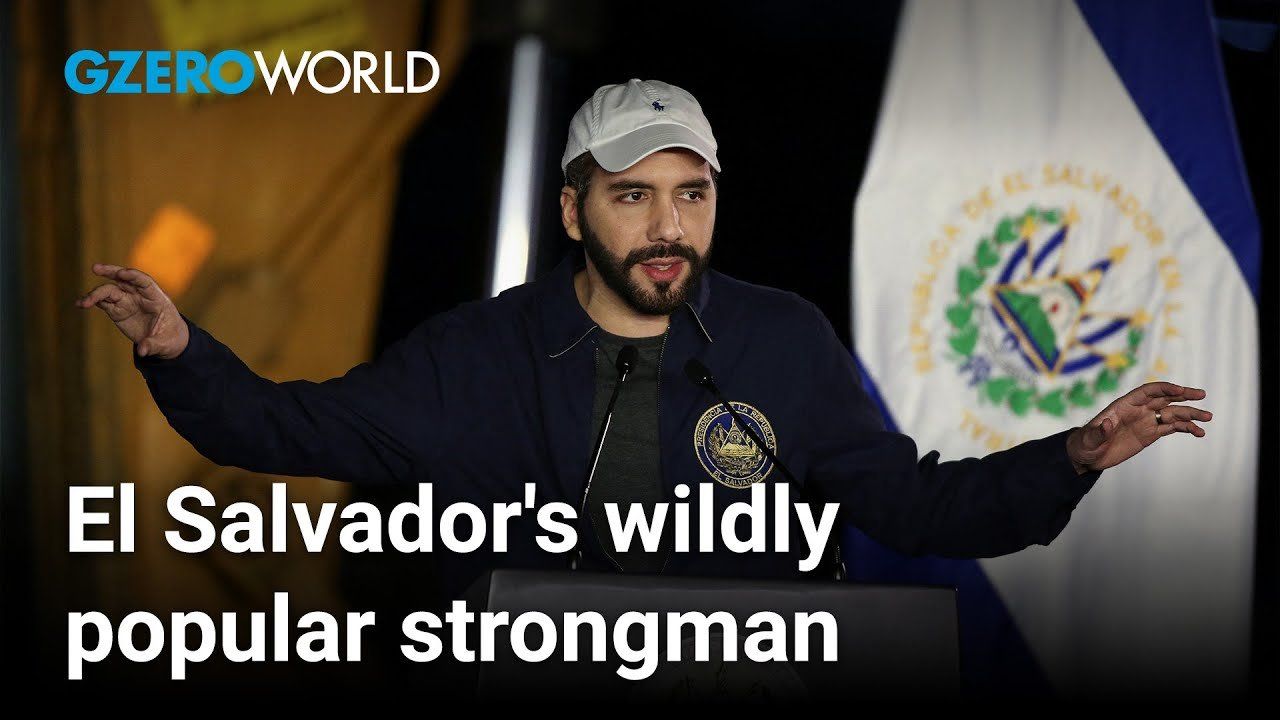GZERO World Clips
El Salvador's Bukele: The posterboy for popular authoritarianism

El Salvador's Bukele: The posterboy for popular authoritarianism | GZERO World

Here's one country where democracy is on the backslide, and the increasingly authoritarian leader could not be more popular. El Salvador's Nayib Bukele won the presidency at 37, as Latin America's youngest elected head of state, as an outspoken candidate on social media with an affinity for cryptocurrency.
In a wide-ranging interview on the state of global democracy in 2024, Stanford's Francis Fukuyama explains Bukele's crime-fighting appeal: "El Salvador legitimately elected Nayib Bukele as president, but he embarked on this massive effort to simply round up people that he thought were gang members and put them in prison, no trial, no, judicial process to find out whether they're actually guilty or not. And as a result, around 10% of the young men in the country are now sitting in prison. Uh, and it's been quite successful in reducing the level of gang violence in El Salvador by like 90%."
And Bukele's approval rating today stands at about 90%. It's just one example of a democratically elected leader pushing the boundaries of what his constitutional mandate allows.
Indian Prime Minister Narendra Modi and Canadian Prime Minister Mark Carney struck a series of deals during a meeting in New Delhi on Monday, including a 10-year nuclear energy deal under which Canada will provide India with uranium.
The US and Israel have launched a series of strikes against Iran at a moment when the Islamic Regime is at its weakest. Ian Bremmer spoke with Iran expert Karim Sadjadpour in Munich earlier this month to understand the choices the regime and population are facing.
With US forces building up in the Middle East, Trump is betting military pressure will force Iran to bend. Will this turn into a full-scale conflict?
Are we still talking. #PUPPETREGIME